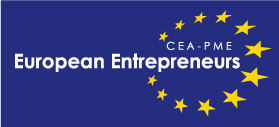The European Union is one of the largest markets worldwide and guarantees peace and stability in Europe. Member States share common values and the freedoms of the internal market. However, national politics are increasingly taking advantage of the EU, while unwanted developments are being blamed only on “Brussels”.
PUTTING THE COMMON VALUES IN THE CENTRE
Shared values and European issues need to be communicated more, inwardly and outwardly. A stronger presentation of successes and achievements creates trust and acceptance. An important building block for the further development of the EU is the creation of practice-oriented programs, targeted measures and effective facilities. These should make the EU’s added value accessible to European citizens and SMEs.
– Establish an EU “SME policy” on all levels
More than 23 million small and medium-sized enterprises are increasingly influenced by the economic policy of the European Union in many ways. However, a targeted EU SME policy hardly exists. The Small Business Act 2008 attracted more attention, especially from microenterprises and start-ups. Despite the financial crisis, where SMEs have emerged as the backbone of the economy, the concerns of small and medium-sized enterprises are still not in the focus of political attention. A targeted EU SME policy should reduce bureaucracy and also take into account larger medium-sized companies.
– Redefining SMEs
The Mittelstand must be more seriously considered in all legislative procedures. This includes the revision of the EU definition for small and medium-sized enterprises: larger family businesses and owner-managed businesses are also to be understood as Mittelstand, maybe with varying co-financing rates in EU-programmes, higher for the smaller ones and lower for the bigger SMEs.
– Lived Subsidiarity
The European institutions must not regulate what countries or regions can better and more efficiently review. This principle of subsidiarity has lately been neglected and needs to be strengthened again. This also means democratically insufficiently legitimized measures that are unjustified by the EU treaties, such as European taxes. The budgetary sovereignty of the countries should remain there.
– Flexibly advancing European integration
Since its inception, the EU has made matching high national standards of living a core objective of European integration. The financing of European integration policy, which accounts for 34% of the European budget, is also based on this objective. The Member States of the EU have thereby grown together in recent decades.
Leaving the EU, as Brexit shows, is difficult and detrimental to economic development on both sides. At the same time, further European integration is becoming more and more difficult due to differences in the interests of member countries. The creation of the “United States of Europe” or a “European Republic” should be long term goals but are today very difficult to be achieved quickly. Instead, European integration should be first deepened through various levels of integration. For example, some countries could move forward and advance European integration while other Member States remain on the current level of integration until they are ready to enter a deeper Union. This is nothing new: also Schengen and the Euro-Area are not participated by all countries.
And if we think of new “European institutions” to be built, these should first be at service of SMEs, not of the public administration alone. For example, a new “EU Foreign trade and Single Market Agency” could be an interesting service agency for SMEs, with offices in Europe and all around the world.



